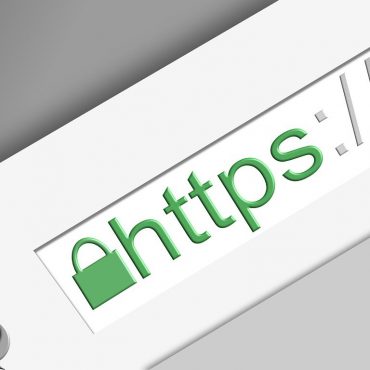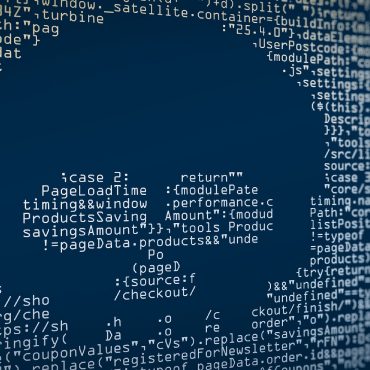The world of the internet never fails to amaze us. Whether it is the rise of new technologies or the emergence of new ways to spam or compromise internet users, there is always something new about it. Whether you create your website on managed WordPress hosting or use any other platform, cybercriminals always keep probing your sites. The latest cybercrimes trend is the PayPal phishing emails which have set the virtual world ablaze in the past few weeks.
According to the details, in the last few weeks, several fake PayPal emails have been reported which created FOMO (Fear of Missing Out) to make people click on malicious links. Well, this is not something new actually because we have been witnessing similar scam emails for the past many years. It is like hitting internet users at their soft points (Emotional Side) to make them click on the wrong links.
Such PayPal phishing emails warned the recipients about missing out on a great offer or losing their precious money or information, or missing out on valuable service. The idea was to create a fear of losing something worthy and make them do the unthinkable. And the truth of the matter is that people generally fall for this trap and face the dire consequences. In most cases, users ended up losing their credentials, credit card information, bank account details, and losing their money. This is why it is highly recommended to always confirm with PayPal about any transaction before interacting with these emails from unknown senders.
In this article, we will have a look at some of the PayPal phishing emails that even fooled the users of managed WordPress websites. These are only a few of the examples from thousands of different instances.
Let’s Figure Out the Common Factors first
Most of the reported emails were sent from secure at intl-limited dot com. When verified, it was discovered that the frequently used email was just a forged version of the original one by playing around with different letters, words, and numbers. Cybercriminals created these fake email addresses to send a series of emails to internet users. They aimed to threaten them to the extent to indulge them in panic-clicking. Some of the most common threats in these emails included the claims that the user’s account was somehow limited or restricted. They also warned the users about some unusual activity on their accounts, thereby asking them to prove their identity for making the non-existent or fake transactions.

Never Believe in “Too Good to Be True”
Anything too good to be true should ring an alarm bell in your mind. Whether you got an email claiming that you have won a huge prize or you received a huge sum of money are bound to sound fraudulent. Never fall for this trap because you should always accept only the amount you deserve. Whenever you receive such an email that says you have received money, always make sure to log into your PayPal account to double-check if you have really received it. This step should be enough to confirm any such transaction.
A similar spree was recorded in the Year 2015 when hackers and scammers targeted grabbing credit card and payment details of internet users. To give you a clear idea, the following image is an example of a malicious email.
The things to note in this image are the typos, which the scammers never tried to fix. This is a clear indication that the email you received was not from a professional company, rather it was created by some hacker or cybercriminal.
Take a look at Scam Mail Examples
The following emails are a general script used by hackers and scammers. Let’s have a look.
- Re: [Important] – Your account was temporarily limited
We would like to inform you of certain modifications to our user contracts which concern you.
No action is required on your part. However, if you would like to know more, we invite you to consult our Policy Updates page where you will find the details of these modifications, in which cases they apply, and how to refuse them, if applicable.
After a recent review of your account activity. we’ve determined you violate PayPal’s Acceptable Use Policy. Your account has been limited until we hear from you. While your account is limited, some options in your account won’t be available.
- Re: [Renewal of the Order Receipt] Sign Up for Bank Statement Updates use Google Chrome from the Marshall Islands
Dear Customer Service
Your PayPal account has been limited because we’ve noticed significant changes in your account activity. As your payment processor, we need to understand these changes better. This account limitation will affect your ability to:
In some emails, they would want you to send or receive money. They would either request to withdraw money from your account or add/remove a credit card or bank account information, dispute a transaction, close your bank account, etc. Cybercriminals always have genuine ideas to make people believe in fake alarms. This is how they operate. If you want to keep your information safe, make a rule to never click on any links, especially in the emails that are not sent by your trusted senders.
Have a look at the following examples.
What to do next?
Please login into your PayPal account and provide the requested information thought {SIC} the resolution center
Re: Submitted: Statement update login with Google Chrome From Taiwan, Province of China
Your PayPal account has been limited
Dear Customer,
Our service is improving the security system for all PayPal account. The reason, many accounts have been hacked by someone to order an item using a credit/debit/bank card in the account associated.
For the convenience and security of PayPal, we have limited all accounts registered.
PayPal is the safer, faster way to pay. To recovery your account, you can click the link button below and proceed with identity verification to prove that it is your account.
Re: Reminder: [Daily Report] [Update News] [System known] Update-informatie zie factuur van – Statement Update New Login
Your PayPal account is temporarily limited
Hello client,
We noticed that you’ve been questionably using your Paypal account. To understand this better, we just need more information from you.
To ensure that your account remains secure, we need you to take action on your account. We’ve also temporarily limited certain features in your account
Currently, You won’t be able to:
- Send Payments
- Withdraw Funds
What should you do?
Log in to your Paypal account follow the steps and perform the required tasks.
RE: Reminder: [Daily Report] [Statement Agreement] We have sent notifications. Automatic updates
Your account has been limited.
Hello, Customer
We’ve limited your account
After a recent review of your account activity, we’ve determined you violate PayPal’s Acceptable Use Policy. Please log in to confirm your identity and review all your recent activity
You can find the complete PayPal Acceptable Use Policy by clicking Legal at the bottom of any PayPal page.
How to Avoid PayPal Phishing Email Scams?
Thankfully, PayPal has fortified its security resources in the past few years. They have a dedicated portal to help people know as much as they can about different types of suspicious email activities. The portal also allows users to report phishing scams. It also makes them understand what needs to be done to guard against such threats and offer better DDoS protection tools for online businesses.
Always open the emails that are from trusted contacts. If you are working with a client as a freelancer, you should always be aware of their professional or personal email addresses. If you receive an email from a similar email address that you have been interacting with, you should act cautiously. The first thing you need to do is to refrain from clicking on any links in those emails. These emails are aimed at falling into the panic-clicking trap, so if you manage to stay away from this spree, you have already won the half battle. Never hesitate to report such emails with PayPal customer service. They would not only help you with better guidance but also use your case as an example to share with other users. This whole activity will help the whole community to ward off phishing emails.
The Bottom Line
Despite all the information and instructions from PayPal, these email scams are not going anywhere in the years to come. Hackers and scammers will keep coming back with new ways to fool internet users and make them click on suspicious links. This is why it is always important to carefully probe any emails from new senders and refrain from clicking on any links. Before you are lured into believing in fake messages like restricted access or locked out, always make sure to visit the PayPal website from your browser. PayPal customer service officials would be able to help you with the real emails but they will be in a position to tell if you have received a scam email. In this situation, you can help PayPal in spreading the word about the latest phishing mode to keep others safe. One way or the other, you can help create a safe living space for people on PayPal as well as on the Internet and do check website performance tool to check website improvement, therefore never hesitate to report any such activity with the authorities.












Post comments (0)